SG60: Three pivotal trends – and their transformative effects on business operations
Artificial intelligence, sustainability and demographic changes will have a significant bearing on outcomes for both businesses and investors, depending on how they navigate a route through the years ahead
AS SINGAPORE embarks on a new decade, it confronts a period marked by increased instability in the global economic sphere.
In the context of this evolving market environment, investors and enterprises are re-assessing their strategic approaches, taking into account shifting currents and the best strategies to leverage these to maintain their competitive advantage.
This roundtable discussion spotlights three pivotal trends – artificial intelligence (AI), sustainability and demographic changes – which will have a significant bearing on outcomes for both businesses and investors, depending on how they navigate a route through the years ahead.
The swift progress in artificial intelligence and robotics and their resulting transformative effects on business operations have hogged the limelight and dominated discussions globally.
For businesses, embracing AI is an imperative which they can ill-afford to ignore if they seek to enhance efficiency, cut waste and, in doing so, reduce costs. Used wisely, AI can even aid decision-making and revolutionise business operations.
A second megatrend businesses and investors are grappling with is sustainability and climate change. It is a multi-faceted problem that demands substantive action from all stakeholders, from governments to businesses and individuals.
Navigate Asia in
a new global order
Get the insights delivered to your inbox.
But the journey is not all smooth-going; in recent months, there have been reports of major economies and businesses scaling back on commitments amid geopolitical and economic tensions.
Yet, there is no turning back. The critical question, then, is: How are stakeholders to proceed with actionable strategies that ensure progress despite obstacles?
Finally, demographic shifts. Longevity presents both opportunities and challenges.
SEE ALSO
Asia, in particular, is at the cusp of a seismic demographic shift. The World Economic Forum estimates that one in four people will be over 60 by 2050, three times that in 2010. The immense impact and far-reaching implications of these numbers present limitless scenarios and, equally, opportunities for innovation and growth.
Panellists in our roundtable discussion, presented here, undertake a deep dive into these three megatrends, share insights on what their own organisations are doing, and offer views on how to thrive in this evolving environment.
Panellists:
Lim Him Chuan, country head, DBS Singapore
Shariq Barmaky, country managing partner, Deloitte Singapore
Gilbert Ng, head of banking for Singapore, corporate and institutional banking, HSBC
Praveen Raina, head of group operations and technology, OCBC
Patrick Lee, CEO, Singapore and Asean, Standard Chartered Bank
Young Jin Yee, co-head at UBS Global Wealth Management Asia-Pacific, and UBS country head, Singapore
Moderator: Lilian Ang, The Business Times
AI and robotics
Shariq Barmaky: The speed of technological adoption today is breathtaking. The iPhone took 74 days to reach its first million customers, but ChatGPT took just five days. It took Netflix a decade to reach 100 million users, but ChatGPT reached this milestone in two months.
The convergence of AI and robotics, coupled with the rapid rise of compute infrastructure and global connectivity, are changing the face of how work gets done, how money will be deployed, and how we live among machines.
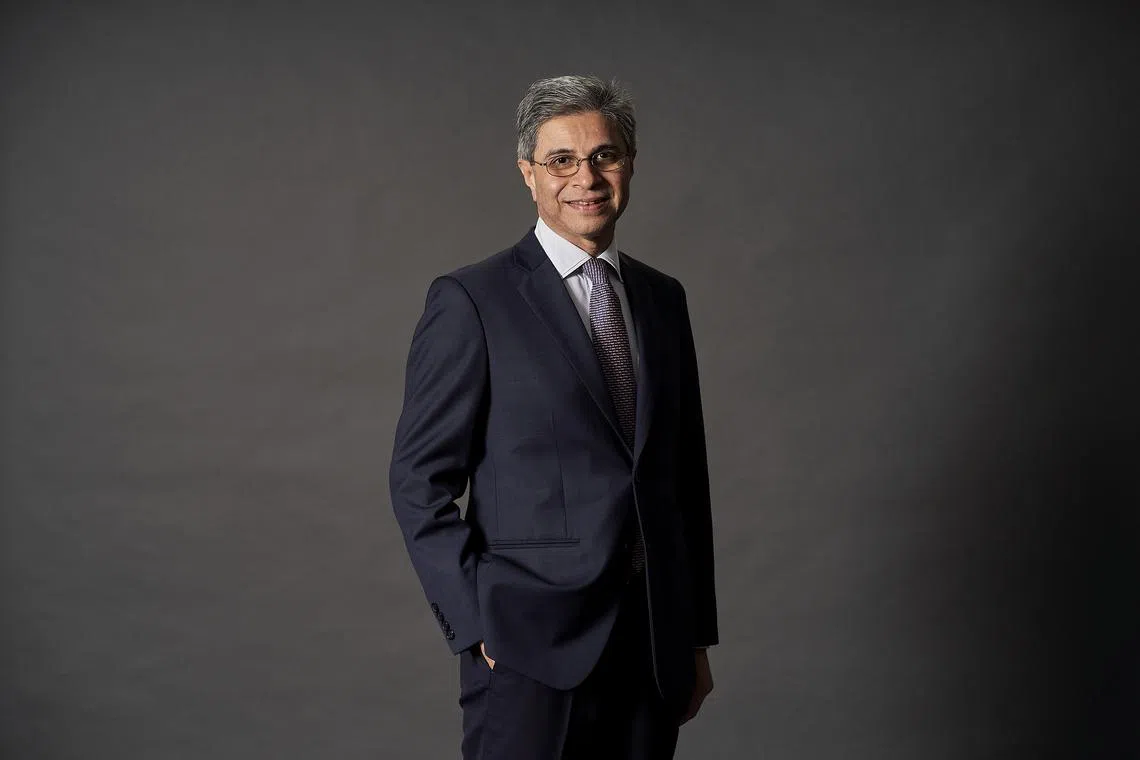
The winners will not be those with the best technology, but those who have the foresight to recognise how this technology is going to shape their industry, market, workforce and customers.
Beyond digital applications, AI and robotics are also driving business value in physical operations. Manufacturing, which accounted for 17.3 per cent of Singapore’s nominal value-add in 2024, is one key sector that illustrates this.
With the use of interconnected systems that combine Internet of Things (IoT) and AI technology with advanced manufacturing techniques, manufacturers can optimise their operations at scale, enabling them to secure a competitive advantage during this time of uncertainty and global competition.
In addition, businesses can streamline their routine processes, augment their strategic decision-making, and move faster with greater precision by combining their existing expertise with tools such as AI agents and robotic process automation.
When advising our clients, we do so based on the core belief that industry knowledge must lead technology, and not the other way around. Digital transformation requires significant leadership commitment, grassroots-level innovation across the organisational matrix, and calibrated risk-taking.
Singapore is at the forefront of capitalising on this megatrend due to its forward-looking bets made to develop AI ecosystems, and its persistent efforts to reinforce the importance of bilateral and multilateral relationships in global and regional trade and business.
At Deloitte, we support our clients in tapping new technologies, empowered by our partnerships and alliances with leading deep-tech players.
As part of our commitment to being at the forefront of this AI-enabled transformation, we recently launched our Asia-Pacific Agentic AI Centre of Excellence, with hubs in Singapore, Malaysia and India bringing together more than 120 AI specialists from the Asia-Pacific, and more than 6,000 practitioners across the region.
The centre leverages Deloitte’s alliances and platforms to help clients design, build and deploy digital workforces at scale.
To promote the responsible use of AI, we have developed the Deloitte Trustworthy AI framework, which helps organisations develop ethical safeguards across seven key dimensions throughout the AI lifecycle, starting from ideation to deployment and beyond.
Young Jin Yee: While AI is a powerful tool, our people remain our greatest asset. Technology amplifies human impact – it is not a substitute for it.
Globally, UBS has been a pioneer in adopting new technology, including AI, to better serve its clients and promote business efficiency. In 2024, we continued making targeted investments and expect AI adoption to drive transformation, so that our clients, employees and shareholders all benefit from the latest innovations.
We are on track to roll out some 50,000 Microsoft 365 Copilot licences to our employees, to date one of the largest deployments within the global financial-services sector.
We have also rolled out Red, our cutting-edge internal chatbot, which builds on state-of-the-art generative AI (GenAI) capabilities, to around 30,000 of our employees. Providing them with access to insights, UBS products, research and the reports of the chief investment officer enables us to deliver even more value to our clients.

Last November, we launched UBS Asia-Pacific’s first AI and Transformation Factory in Singapore. We expect the development of innovative solutions in Singapore to be modular and scalable beyond the region.
Looking ahead, our chief investment office expects the biggest impact of AI to come in the technology, communication services, financial, and healthcare sectors, among others. In the financial sector, AI-driven revenue opportunities arise from enhanced client interaction, new product development and market expansion, benefiting corporate and retail banks.
Lim Him Chuan: Emerging technologies such as AI and blockchain are game changers for many industries. DBS has been at the forefront of leveraging such innovations to reimagine banking.
We have been thoughtful about how we organise ourselves to harness these technologies to remain agile and adaptive.
Over the past few years, we have moved from vertical silos, the norm for most organisations, to more horizontal ways of working. Cross-functional teams are built around customer journeys and supported by data-driven control towers and AI tools, which enable us to improve customer propositions more nimbly.

DBS is doubling down on industrialising the use of AI and GenAI to improve productivity and reduce toil for employees, while driving more hyper-personalised and contextual solutions for customers.
We remain guided by our governance frameworks to ensure that AI is deployed responsibly and in a way that fosters trust. We are also realising the potential of blockchain technologies through our digital asset ecosystem and transforming payments and transactions for institutional customers.
DBS will continue upskilling all its employees. We have identified 13,000 of them for upskilling or reskilling; of that number, 10,000 have started their learning journeys, which include AI and data.
Praveen Raina: In financial services, we are only scratching the surface of AI’s potential.
While GenAI is still in the early stages of enterprise adoption, its value is already evident. At OCBC, we see GenAI as a catalyst for hyper-personalising wealth recommendations and enhancing operational efficiency, empowering our teams to focus on strategic, higher-value tasks.
To date, we have deployed over 35 GenAI solutions, with some delivering up to 50 per cent more productivity. A key milestone in November 2023 was the launch of OCBC GPT – a GenAI-powered assistant supporting 30,000 employees globally in tasks such as writing, research and ideation. These tools are now used up to 500,000 times monthly.
We anticipate that agentic AI and advanced reasoning models will be pivotal in accelerating AI adoption. Agentic AI is already enabling end-to-end automation of complex processes such as customer onboarding.
As these technologies evolve, AI will increasingly take on autonomous, sophisticated tasks – becoming a true virtual employee that augments our workforce.
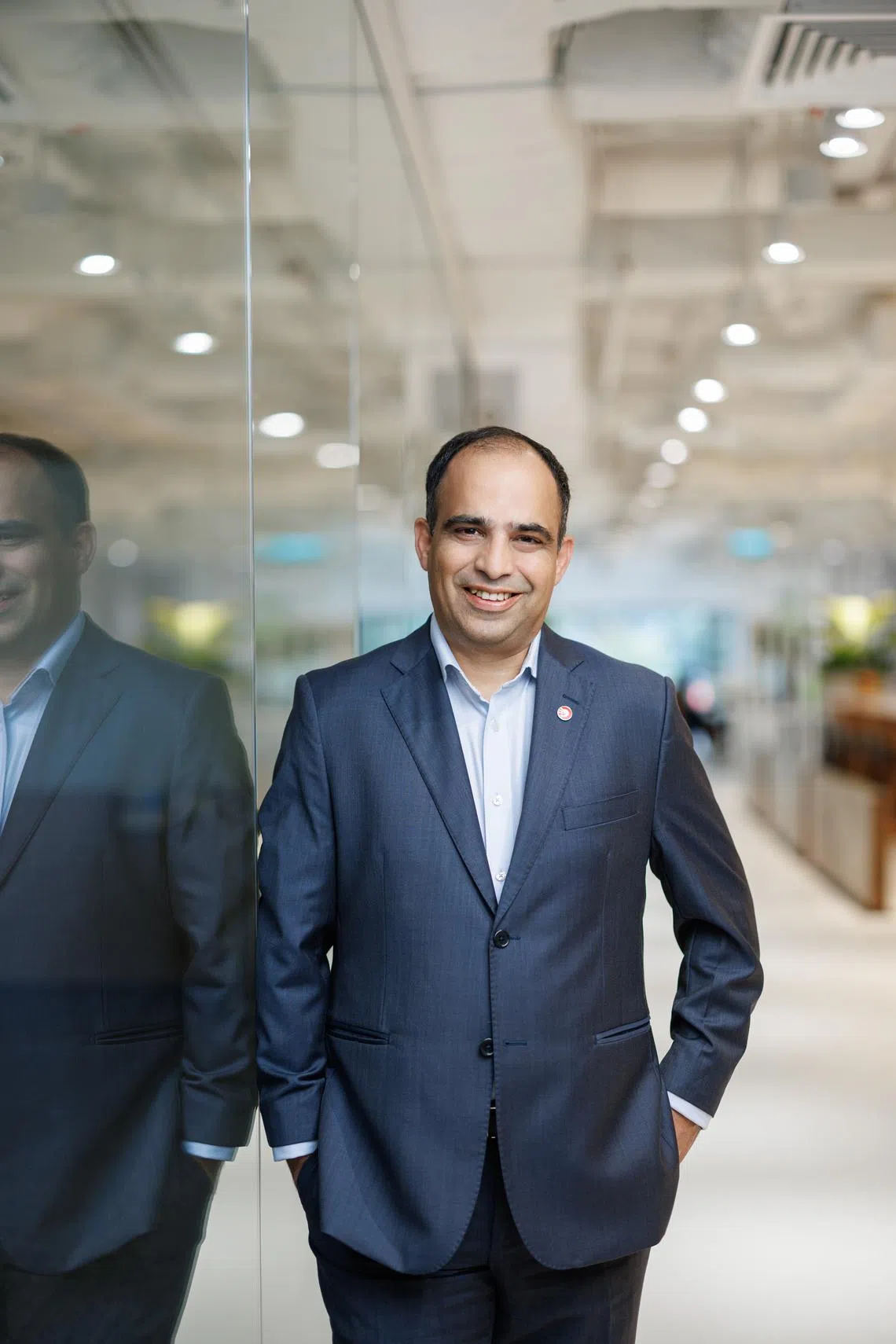
With innovation comes responsibility. Risks such as misinformation, ethical concerns, inequality and data security must be proactively managed.
OCBC has established a robust governance framework to ensure all AI deployments align with FEAT (Fair, Ethical, Accountable, Transparent) principles. A dedicated committee oversees model materiality and regulatory compliance before production rollout.
It is clear that the future of banking will be fundamentally reshaped by AI and frontier technologies. This is why we remain vigilant and adaptive – monitoring trends and breakthroughs that will redefine the industry in the decade ahead.
Patrick Lee: Effective adoption of GenAI is an operational imperative for everyone, not just banks. In financial services, a key sector for Singapore, we believe the potential for GenAI to help banks deliver against their priorities in cross-border and affluent banking will be game-changing.
As financial institutions strive to deliver innovative, digital-first personalised experiences, the effective use of data, analytics and AI capabilities to enhance the client journey will be instrumental in enabling the industry to bridge information gaps, deepen relationships and engagement to meet the differentiated and evolving needs of clients in Singapore.
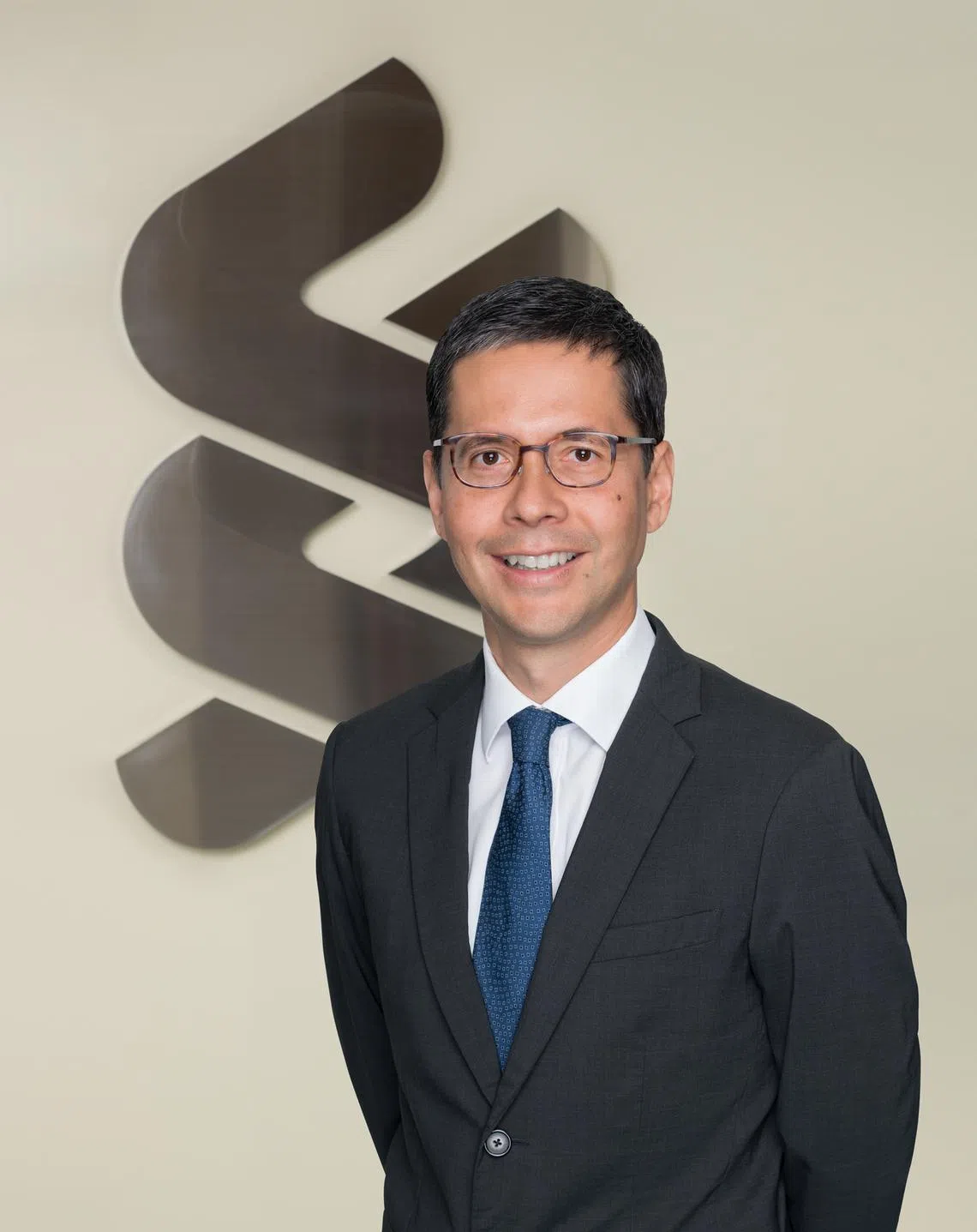
It is on industry leaders such as Standard Chartered Bank to foster an environment where digital transformation can be accelerated to better serve and empower clients, so that we can continue to capture the opportunities that AI brings about in areas such as productivity, new business models or enhanced experiences.
This is also why Standard Chartered launched SC GPT in more than 40 of its markets, including Singapore, earlier this year, to harness the power of GenAI to augment our existing tools and capabilities, as we revolutionise the way we work and engage with our clients, colleagues and partners.
Gilbert Ng: These key megatrends highlight the pace of change that businesses are faced with in today’s world, accelerated by technological advances, environmental urgency and social transformation.
HSBC sees these megatrends not in isolation, but as interconnected forces that demand a unified and forward-thinking strategy. As the world’s No 1 trade bank, HSBC has been helping businesses to navigate through challenges and connecting them to new opportunities for over 148 years in Singapore.
On AI and robotics and its impact on businesses: Over the next decade, advances in AI, automation, robotics and other emerging technologies will allow dramatic gains in productivity as machines take on more complex tasks. This will reshape entire sectors and business models.
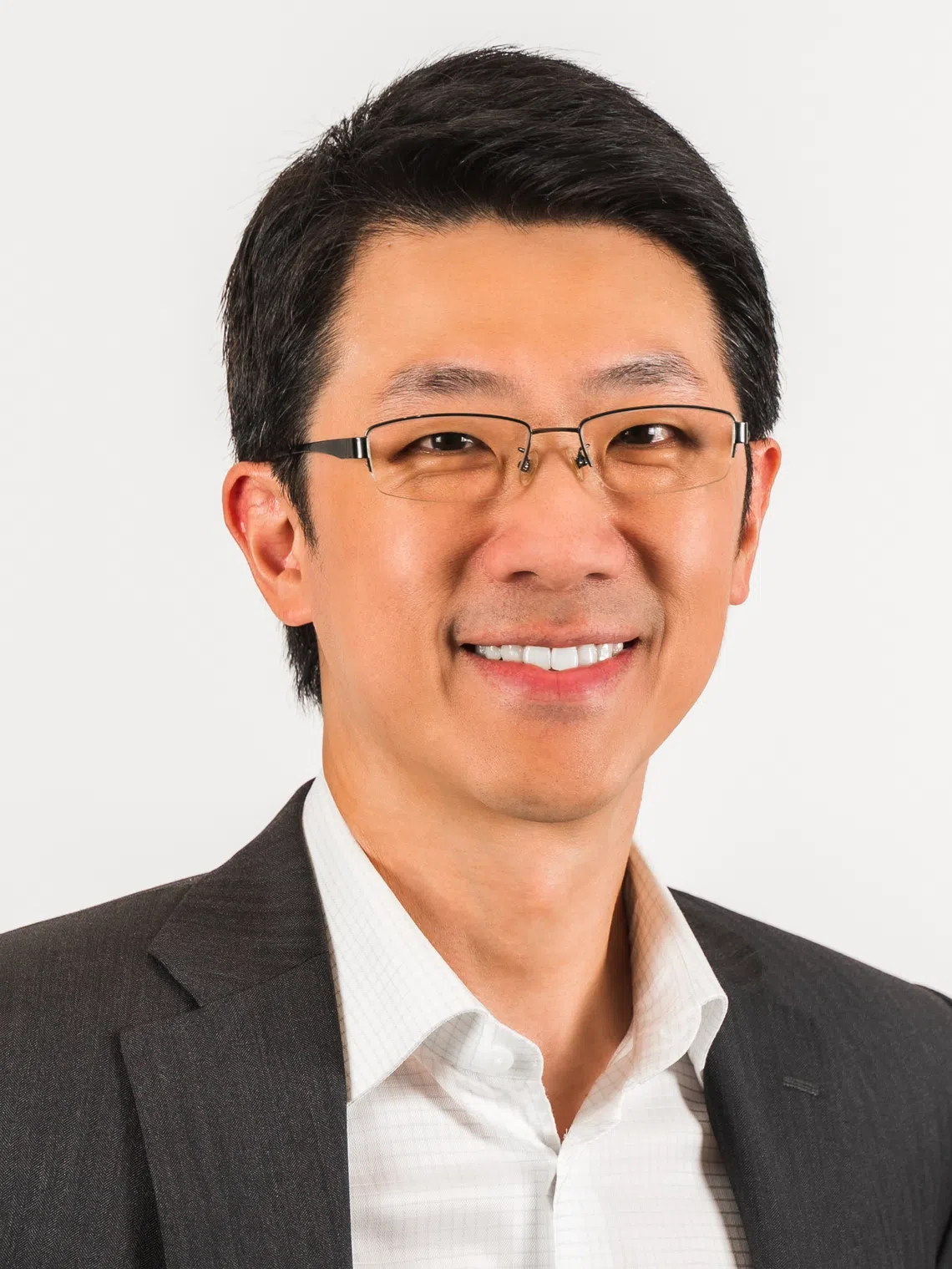
Surging adoption of digitalisation and AI technologies has also amplified the demand for data centres across Asean.
To keep pace with the current adoption, the power needs of data centres are expected to grow exponentially as AI workloads are highly energy-intensive and require large-scale computer infrastructure to process, store and transmit huge amounts of data and application.
Access to sustainable power has become a critical factor in driving new data centre builds. Hyperscalers such as Google, AWS and Microsoft that have put forth leading climate commitments are driving the demand for the build-up of more sustainable data centre capacity.
Singapore will benefit from this pivot. As part of Singapore’s Green Data Centre Roadmap launched in 2024, new data centres must:
- Achieve a Power Usage Effectiveness (PUE) of at least 1.3 for new builds;
- Explore alternative energy sources, including imports and green hydrogen; and
- Pilot projects in locations such as Jurong Island for sustainable, high-capacity AI infrastructure.
We are starting to see new sustainable data centres being set up in Singapore. STT GDC is committed to achieving net-zero data centre operations by 2030.
AirTrunk SG developed one of Singapore’s largest hyperscale data centres with a PUE target below 1.25. It supports AI-heavy workloads while employing high-efficiency cooling systems and renewable energy offsets.
Google is working towards carbon-free data centres in Singapore to achieve 24/7 carbon-free energy for these facilities by 2030.
In today’s digital world, having access to capital and ability to manage cash and payments seamlessly and efficiently across borders will be vital for business growth.
Banks need to similarly evolve and stay at the forefront of innovation and leverage technology to bring down barriers and make it easier for businesses to evolve and transform.
Sustainability and climate change
Eric Lim: As a bank with extensive Asean presence, UOB addresses sustainability and climate change in a progressive yet pragmatic and nuanced manner that considers the region’s socioeconomic priorities and challenges.
We are guided by a common goal to forge a sustainable future with our customers, which also ensures that our sustainability strategy is aligned to the interests of our stakeholders.
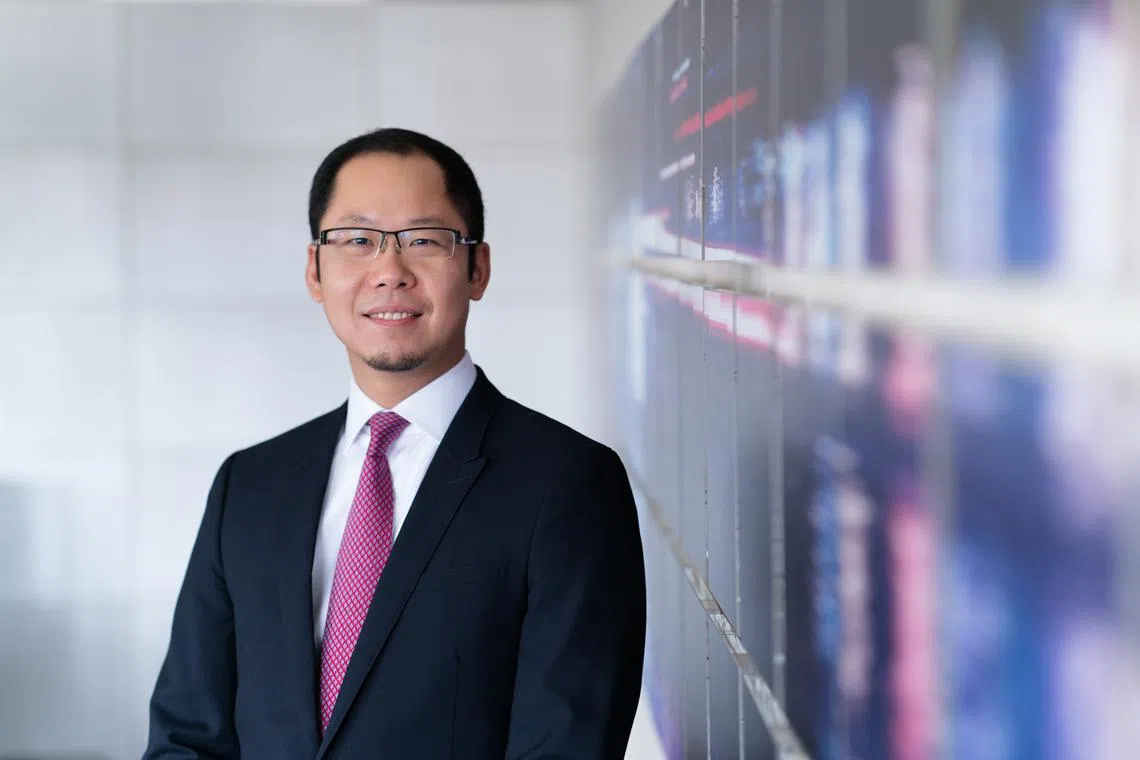
Sustainability to UOB is about economic resilience, job creation and market competitiveness, and we extend this approach to the support of our customers.
Through financing, we can help influence and drive change in the real economy, where more companies make the switch to renewable energy, deploy circular business practices, and build cleaner and smarter urban infrastructure.
To this end, UOB has in place various frameworks and our U-Series solutions to make sustainable finance more accessible to our customers.
The shift to a lower-carbon economy is not easy, but can be a nearer reality when we help our customers rethink the transition as business risk and profitability. The imperative is even greater in Singapore, with strong regulatory and policy support, to build a “city in nature” with a resilient future.
Mike Ng: OCBC, Singapore’s longest-established bank with over 90 years of history, is committed to enabling individuals and communities to achieve their aspirations while driving action towards a low-carbon future.
Sustainability is central to our business strategy, shaping our portfolio and guiding our support for businesses and customers, for whom sustainability has become a critical business imperative.
In 2024, we extended over 200 green, social and sustainability-linked loans to wholesale banking clients, serving as sustainability advisers in about 140 of these transactions. These brought our sustainable finance portfolio to S$71 billion.
Since launching the OCBC SME Sustainable Finance Framework in 2020, we have provided over S$9 billion in sustainable finance to more than 4,000 small and medium-sized enterprises (SMEs) across the region and formed partnerships to offer them tools for measuring sustainability performance.

We have also made significant progress in decarbonising our corporate and commercial banking loan portfolio in six priority sectors with established net-zero targets.
OCBC was named top Mandated Lead Arranger in 2024 for Sustainable Finance Loans Volume in Asia-Pacific (excluding Japan) and in South-east Asia. We also launched the OCBC Sustainability Hub last year to simplify sustainable investing for retail customers, achieving a 2.3-times increase in sustainability-themed investments within six months.
While global climate action may face roadblocks at times, we will stay the course on our climate commitment, as our clients remain committed to sustainability and the risks of inaction are too high.
As one OCBC group, we will continue to leverage our expertise and offerings across banking, wealth management, asset management and insurance to support clients’ transition with strategic advisory and innovative financial solutions.
Patrick Lee: The opportunity to finance the transition to a low-carbon economy is more compelling and crucial than ever for global financial institutions such as Standard Chartered.
Sustainability has been and remains an integral part of our business, and we recognise the scope for further sustainable finance growth, particularly as new technologies come online, and as renewable capacity growth continues to outpace that of fossil fuels.
Asean is the fourth-largest energy consumer in the world and energy demand has increased by around 3 per cent per year on average over the past two decades, according to the International Energy Agency.
Last year, we breached the 1.5 deg C threshold for the first time, making 2024 the warmest year on record. As an international bank with a presence in 53 of the world’s most dynamic markets, including all 10 countries in Asean, we recognise that we have a role to play in supporting companies, governments and stakeholders when it comes to green transition.
We know that transformation will not take place overnight and more work remains to be done. It is our collective hope that we can inspire confidence and empower greater action towards building a more sustainable future for the world.
Young Jin Yee: We support our clients in the transition to a low-carbon world and consider climate change risks and opportunities across our bank for the benefit of our clients, shareholders and all our stakeholders.
In 2024, following a review of our own operations target for Scope 1 and 2, we decided to set a revised target to reduce Scope 1 and 2 emissions to net zero by 2035, which reflects both the integrated organisation and latest regulatory guidance.
We made progress on these key components of our climate action plan, reducing our net greenhouse gas Scope 1 and 2 emissions and energy consumption. For Scope 3, we remain committed to our lending sector decarbonisation targets to address our financed emissions in specified sectors and have progressed on these.
In Singapore, we perform climate risk assessments on discretionary portfolios managed here in line with the Monetary Authority of Singapore Guidelines on Environmental Risk Management for Asset Managers.
Lim Him Chuan: In a world where environment, social and governance (ESG) issues are becoming increasingly politicised, it is important to remember that at its heart, the sustainability agenda is about building a resilient future where everyone can live well with unfettered access to basic needs.
We are seeing how climate-related financial risks are impacting risk considerations, while social tensions could similarly affect economies and bottom lines if not managed well. Singapore has taken a proactive approach in addressing these challenges, and companies have an important role to play in driving change.
DBS is helping our corporate clients advance their sustainability journeys. In March this year, we refined our Transition Financing Framework to further support large corporates transform their business. We also partnered Enterprise Singapore (EnterpriseSG) to launch the ESG Ready Programme to help SMEs and mid-sized corporations build their sustainability capabilities.
Our commitment to sustainability is central to our ambition of being the “best bank for a better world”, and core to this is our belief that as a bank, we can do well by doing good. It is this deep sense of purpose that anchors our sustained focus on supporting Asia’s transition to a lower-carbon future while ensuring that no one is left behind.
Gilbert Ng: Climate change is no longer a distant threat; it is a present reality that demands urgent and collective action.
For HSBC, we understand the transition to a net-zero future is one that requires a collaborative effort across the public, private and philanthropy sectors; HSBC remains firmly committed to supporting the transition.
Despite some of the rhetoric and shifting policies coming out of the US, companies in Asean remain very focused on their decarbonisation journeys. It is clear from our client conversations that they understand that the consequences of falling behind can be extremely detrimental.
Transitioning means future-proofing your business, and we continue to advise many clients on their sustainability strategies and how financing can be aligned to these objectives.
For example, HSBC acted as sole sustainability coordinator on Ho Bee Land’s first sustainability-linked loan. The S$460 million deal reflected the company’s commitment to lowering its carbon footprint and its belief that sustainability must be embedded across all aspects of its business.
We’re seeing a clear trend: Capital is moving where climate ambition is matched with action. Across Asia and the Middle East, markets like Singapore are stepping up to meet this growing commercial opportunity, attracting investment around the transition to net zero.
To help unlock the flow of capital needed by enabling blended finance opportunities, we’ve established Pentagreen, the sustainable infrastructure debt financing company, with Temasek, with the aim of deploying US$1 billion under the Financing Asia’s Transition Partnership’s Green Investments partnership.
We’ve also recently launched the Future Industries Partnership, together with Third Derivative and Founders Factory, to accelerate climate technologies across the industries facing some of the biggest transition challenges like steel, cement and chemicals sectors in Asia and the Middle East.
Recognising that smaller businesses in Singapore continue to face barriers to decarbonisation compared to the larger enterprises with dedicated resources and a wider range of financing solutions, we launched the HSBC Sustainability Improvement Loan last year.
The loan is structured by linking the interest margin to changes in borrowers’ sustainability assessments and ratings from EcoVadis, one of the world’s largest providers of business sustainability intelligence and ratings.
Shariq Barmaky: Climate change is a critical issue of our time, and we believe it takes collaborative action to progress towards a low-carbon future.
As one example of how we’re driving sustainability through collaboration, we developed a sustainability reporting tool for SMEs in Singapore together with DBS, providing tailored insights and practical recommendations aligned to the Task Force on Climate-related Financial Disclosures (TCFD) framework.
This has enabled SMEs to identify key gaps, access targeted support and secure relevant funding through EnterpriseSG’s Enterprise Development Grant, accelerating their green transition.
We also believe in the power of empowering organisations to take charge of their own sustainability journey. We work with organisations to not only ensure regulatory compliance, but also to identify opportunities for sustainable growth and innovation.
Besides supporting clients with their climate reporting and assurance, we provide training on topics such as ESG principles and sustainable finance.
Internally, we continue to work across our global network to advance WorldClimate, Deloitte’s environmental sustainability ambition, which includes a net-zero by 2040 goal that has been validated by the Science-based Targets initiative.
We are embedding sustainability into operations by integrating climate-conscious practices into procurement, business processes and performance measurement. Through both the actions we take and actions we inspire to promote responsible climate choices, we believe that progress towards a more sustainable future is possible.
Demographic shifts and urbanisation trends in the region
Young Jin Yee: UBS’ chief investment office believes these three transformational innovation opportunities will drive equity markets in the coming decade: artificial intelligence (AI), power and resources, and longevity.
Longevity covers opportunities that capitalise on a longer lifespan. In 2024, 830 million people globally were over the age of 65; by 2050, the United Nations expects this figure to nearly double to 1.6 billion.
Asia particularly faces a seismic shift. By World Economic Forum estimates, one in four people will be over 60 by 2050, three times that in 2010. For Asia, the implication of an ageing and shrinking labour force will have implications on the workplace, with the rise of automation and AI.
Ageing demographics may imply lower savings rates, a reallocation of assets toward higher-yielding products, and a slowdown in loan growth. Banks that are able to pivot toward fee-based income streams such as wealth management and insurance are likely to better adapt to demographic shifts.
Moreover, the longevity boom is set to reshape demand across economic segments such as healthcare, consumer, financial services and real estate. We believe the total market opportunity could reach around US$8 trillion by 2030, up from US$5.3 trillion today.
Lim Him Chuan: With many societies in Asia ageing rapidly, DBS is taking a multifaceted approach to shape a future where people of all ages and circumstances are empowered to live longer, healthier, more productive lives.
As people live longer, it’s crucial that they’re able to fund these extra years. We equip our customers with the knowledge and tools to build financial resilience across every life stage.
From driving financial literacy from a young age through POSB Smart Buddy, managing their wealth with tools in DBS/POSB digibank, to building their nest egg with retirement planning solutions.
The DBS Foundation works with ecosystem partners to create impact at scale and ensure vulnerable groups, including seniors, aren’t left behind. For instance, we partnered the Infocomm Media Development Authority to drive digital inclusion; in two years, we held 680 digital literacy workshops benefiting over 150,000 people, many of whom were seniors.
Gilbert Ng: The Asean markets are home to a dynamic demographic, with 35 per cent of the population under 25 years old and 65 per cent forecast to be “middle income” in the next five years.
In addition, there are 400 million Internet users across the region, making South-east Asia the largest digitally enabled population in the world.
With a combined GDP of US$3 trillion, this dynamic and digitally native region is one of the fastest-growing trade blocs in the world. South-east Asia’s digital economy is also expected to reach US$600 billion by the end of the decade.
Singapore sits strategically as a hub and gateway to this exciting region.
With a culture of innovation, strong intellectual property protection laws, and its status as an international financial centre, alongside strong government support through grants and tax incentives, the Republic is well positioned as a regional technology and innovation hub for startups, incubators and investors.
A common pain point for new-economy businesses is finding the right financing partner that understands their needs and can support them throughout their growth trajectory.
When it comes to funding new-economy businesses, it is important for banks to understand that profitability may not always reflect a company’s potential especially in its early stages. That is why at HSBC, we adopt a long-term view of their potential growth by evaluating new-economy businesses based on historical portfolio performance, key operating metrics, growth plans and customer acquisition strategies.
It is also critical to support the investors such as venture capital and private equity firms, as they play a key role in providing funding from inception to growth stage. Specifically, we have set up a dedicated coverage team to better support these investors’ transaction banking and financing needs.
More importantly, we continue to support industry initiatives that will help new-economy businesses build connections and access opportunities through curated events.
We also recognise that being part of the ecosystem will enable us to better understand the needs of the next generation of entrepreneurs, we will continue to work with key partners to shape dialogues and best practices.
Decoding Asia newsletter: your guide to navigating Asia in a new global order. Sign up here to get Decoding Asia newsletter. Delivered to your inbox. Free.
Copyright SPH Media. All rights reserved.


















